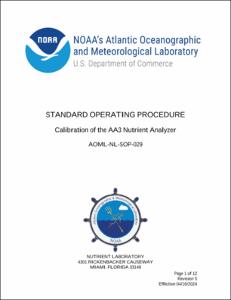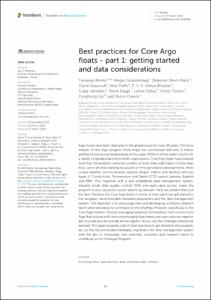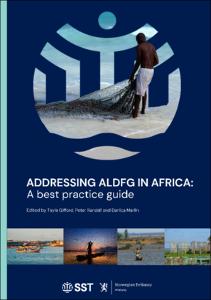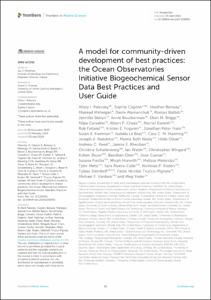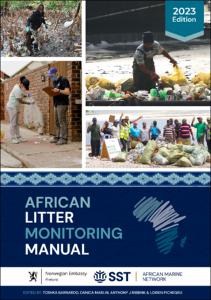OceanBestPractices (OBP) is a secure, permanent document (and other objects) repository. It aims to provide a discovery point for research groups to search and find community accepted existing ocean best practices. This service also invites the ocean research, observation and data/information management communities to submit their own best practice documents to share globally with their colleagues. More...
Please note unless it has been accepted and annotated in OBPS as an Endorsed Practice by an Expert Panel, inclusion of a methodology in the OBPS, does not indicate that the methodology is recommended by OBPS.
User Guides
Communities in OceanBestPractices
Select a community to browse its collections.
Recently Added
-
Standard Operating Procedure: Calibration of the AA3 Nutrient Analyzer, Revision 5.
(NOAA Atlantic Oceanographic and Meteorological Laboratory, Miami, FL, 2024)This Standard Operating Procedure is followed when calibrating the SEAL Analytical AutoAnalyzer 3 (AA3) in the Nutrient Laboratory at NOAA's Atlantic Oceanographic and Meteorological Laboratory. It describes the preparations ... -
Best practices for Core Argo floats - part 1: getting started and data considerations.
(2024)Argo floats have been deployed in the global ocean for over 20 years. The Core mission of the Argo program (Core Argo) has contributed well over 2 million profiles of salinity and temperature of the upper 2000 m of the ... -
Addressing ALDFG in Africa: a best practice guide.
(Sustainable Seas Trust, Gqeberha, South Africa., 2024)Abandoned, lost or otherwise discarded fishing gear (ALDFG) is considered harmful not only because it may lead to ghost fishing, but because fishing gear makes up a significant proportion of macrolitter in the world’s ... -
A model for community-driven development of best practices: the Ocean Observatories Initiative Biogeochemical Sensor Data Best Practices and User Guide.
(2024)The field of oceanography is transitioning from data-poor to data-rich, thanks in part to increased deployment of in-situ platforms and sensors, such as those that instrument the US-funded Ocean Observatories Initiative ... -
African Marine Litter Monitoring Manual. 2nd Edition.
(African Marine Waste Network, Sustainable Seas Trust, Gqeberha, South Africa, 2023)The manual evolved from an initiative in the Western Indian Ocean region that was spearheaded by WIOMSA (Western Indian Ocean Marine Science Association) and Sustainable Seas Trust. The first edition created considerable ...
 Repository of community practices in Ocean Research, Applications and Data/Information Management
Repository of community practices in Ocean Research, Applications and Data/Information Management
